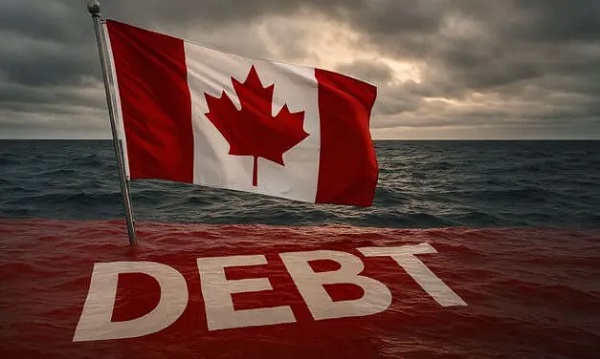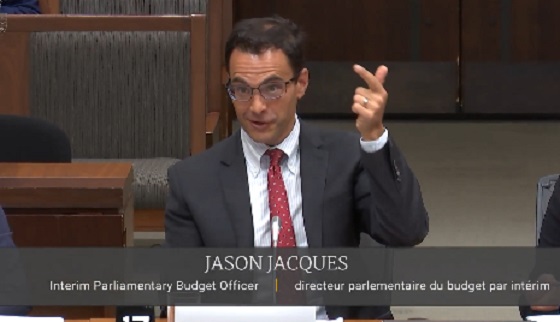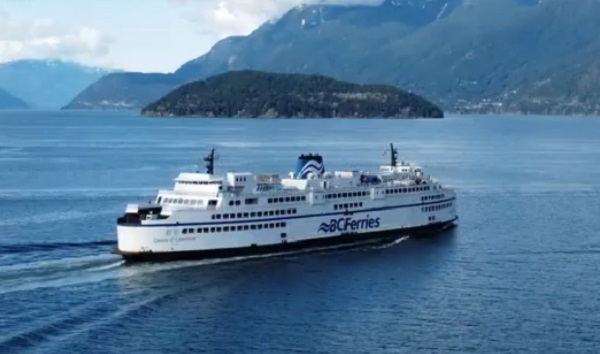Bruce Dowbiggin
Why Best Friends Are Fighting: Tariffs Are Just Trump’s First Salvo
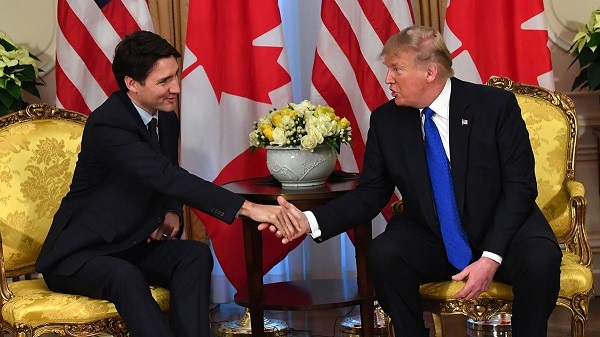
Trump is holding a mirror to a postmodern Canadian state that still thinks it’s Bob & Doug McKenzie and polite folk opening the door. Maybe it was at one time, but since Justin Trudeau spread his chocolatey goodness on the nation it’s now a world centre for money laundering that won’t pay its defence obligations.
The hysteria was mint this past weekend from panicky Canadians acting as if Donald Trump’s tariffs were a Pearl Harbor sneak-attack. They booed the Star Spangled Banner at sporting events, had conniption fits of self pity (‘we’ve been friends for so long!”) and generally acted like fainting goats by forgoing U.S. sun holidays.
Whatever the merits of Trump’s beefs the indignant reaction revealed a very unsettled nation. Punishing America by pulling wines you’ve already paid for off the shelves is baffling. Cancelling a Star Link contract with Elon Musk is just a self goal. (A chastened Musk replied, “Oh well!”) Alberta premier Danielle Smith, who’d used negotiating to get a cutout for Canadian oil, being roundly called a vendu by the righteous Eastern horde was precious.
Charter members of the crumbling legacy media outdid themselves in promoting Trudeau’s fanciful Team Canada theme. “This is a mind poisoned with grievance and resentment,” raged CBC panelist Andrew Coyne. “So coked up on his own bile that even in a moment of maximum national peril his first thought is how to use it to settle scores with the rest of the country.”
Well then. It was all rather unseemly. Noted Dilbert creator Scott Adams, “Canada’s response to Trump’s tariffs is to be publicly sad about it.” But are Trump’s concerns genuine? Is he picking unfairly on a longtime pal? The fact is that Trump is holding a mirror to a postmodern Canadian state that still thinks it’s Bob & Doug McKenzie and polite folk opening the door. Maybe it was at one time, but since Justin Trudeau spread his chocolatey goodness on the nation it’s now a world centre for money laundering that won’t pay its defence obligations.

Example: TD Bank was just fined $3B by US regulators for laundering fentanyl drug money back to Communist China. It’s the largest such fine in U.S. history. A fine TD paid without complaint. Trudeau’s Canada is a credit-bubble real estate play inside a WEF construct wrapped up in an entitled clique that sits in first class but only pays economy. (And don’t get us started on the unsolved Sherman murders.)
Having gotten their news from CBC and Toronto Star, the average CDN does not understand any of this. While the Libs/ NDP swoon over climate and pronouns, Canada has become a place that Trump and other nations simply don’t trust. Security officials fear that anything said to Trudeau’s government will end up getting to China or other bad actors. And many of those same bad actors are domiciled in Canada at the moment. (The RCMP say there are over 4,000 separate groups dealing drugs in Canada.)
Canada’s exclusion from surveillance organizations like AUKUS and the G7 Quint talks is enough to tell you that Trump is not alone in distrusting Canada. Under the previous Obama doctrine, Canada was cool so long as it did DEI, ESG and had kittens over climate. Biden let the Great White North snooze away under Trudeau. The new American administration, however, has a higher bar of expectations.
Ones Trudeaupia has not met. How do you describe America’s sense of astonishment when it asked its “loyal friend” Canada not to import 5,000 undocumented Gazans during this current shooting war, not wanting terrorist sympathizers along its northern border. Then, out of spite, Trudeau’s response was to bring them in, give them healthcare and do photo ops with them?

Trudeau has also lectured Americans for electing Trump and not a woman in 2024. No wonder Trump played them last weekend about their lax border security. One of the “brilliant” ripostes on borders — repeated by all the clever people— was that only one percent of America’s fentanyl comes from Canada. For those who think that’s a mic-drop moment consider: that’s fentanyl seized by America at the border.
Here, Canada’s international crime agency destroys the one-percent argument. Canada is a major manufacturer and distributor of fentanyl. How major? There is a technique used by international drug and money launderers called the Vancouver Model.
As a recent discovery of 8 Kg during a truck stop in Swift Current illustrates, the amounts undiscovered in Canada and the U.S. that originate from shipments to Montreal or Vancouver are way more than the CDN media parroted over the weekend. For those booing the Star Spangled Banner, note that 8 kg. is enough for four million deadly doses of fentanyl. (B.C. NDP premier David Eby had to confess he can’t even begin to inspect all the drugs flowing through Vancouver).

This story of a Punjabi driver arrested in Manitoba with $50M in meth in his truck gives you the flavour. Last month, Toronto police seized 835kg from a truck and stash houses across the city. And, say experts, there are more terror suspects coming from Canada to America than from Mexico. Now tell us why the unchecked importation, distribution and profits from the drugs are not significant in a trade deal.
Speaking of truckers, Canada’s explosion in newly arrived cross-border truck drivers is another huge issue for Americans. As Toronto business writer Stephen Punwasi @stephenpunwasi explains a good portion of the “students” coming into the nation are getting a very different education on life in Canada. “Canada had no checks or balances for its study program. No background checks or school verification. Just show up at the airport w/ proof of funds, and a letter they won’t verify. That’s it. ” These “graduates” quickly end up in a rig running contraband drugs, guns and tech to supplement their minuscule earnings.
“Between 2017 & 2024, Ontario went from 80 truck driving schools to 280. The province has 6 auditors for 600 private career colleges—almost half for trucks, apparently. No enforcement standards.
“To recap,” continues Punwasi:
-
“money laundering capital of the world
-
– no school regulations
-
– criminals run certifications
-
– desperate folks from developing countries w/no standard of entry
-
– no scrutiny for x-border traffic”
Canadian trucking executives know the problem in the industry. They say new entrants make no money trucking, but they do make for easy “‘runners’. It is rampant. One executive says his firm has virtually exited the cross-border business, because of the changing demographics. These truckers— many of them speaking no English— are housed in suburban neighbourhoods in Brampton or Mississauga or Surrey, stacked by the dozens in barracks homes in between their sorties to the U.S. and the ROC. Attempts to restore local zoning laws are fought by the ringleaders.

But hey, says CBC, Trump exaggerates the problem. He’s also contemptuous of the current attempt to slide climate alarmist Mark Carney into Trudeau’s seat. The dread of being lectured by a CBC-approved suit like Carney is only leavened by the prospect that he can deal with Pierre Poilievre when— if— the Liberals ever let Canadians voice their will. This is what Canada’s Left call progress. Save the tundra and the Arctic swallow but crater the economy.
A final feature of the pearl clutching this past weekend was the idea that Trump would somehow invade or otherwise claim Canada as a 51st state. Canadians seem to feel that Trump’s job is to pacify their feelings, not act on behalf of those Americans who decisively elected him and his mandate. Like victims of a high school break-up Canadian progressives are now tearing up all the letters and sending back the jewelry from their tryst. Memo to Canada: Being U.S. president is not joining a book club. As such you don’t elect a trust-fund poseur.
Whatever Trump’s jest, the last thing he wants is the culture nightmare of Quebec, the vast land claims of the native tribes, the welfare status of the Maritimes and the unbearable smugness of the Flora MacDonald Marching Band in Ontario. If Canada or Canadians are to join America it will be because they’ve asked in, not be captured. Trump would dictate the terms, and he doesn’t want a dozen new Mississippis, especially ones with poutine.
For now, the 30-day pause in tariffs allows time to drop the theatrics and get on with the reality of an economy that will consume Canada’s economy at the present rate. By week’s end even Trump’s vitriolic critics like the Globe&Mail were offering backhanded acknowledgements that, however crude they found the president’s tactics, he did wake up Canadians to the issue of Canada’s lassitude on defence and the border. Doomberg summed up the conflict. “The economic wisdom of applying tariffs is worthy of debate, but the threat of tariffs has proved the perfect instrument for the task. Having weighed 250 daily American deaths on the scale of trade-offs, Trump’s actions have finally acknowledged reality. Godspeed’.”
Bruce Dowbiggin @dowbboy is the editor of Not The Public Broadcaster A two-time winner of the Gemini Award as Canada’s top television sports broadcaster. His new book Deal With It: The Trades That Stunned The NHL And Changed Hockey is now available on Amazon. Inexact Science: The Six Most Compelling Draft Years In NHL History, his previous book with his son Evan, was voted the seventh-best professional hockey book of all time by bookauthority.org. You can see all his books at brucedowbigginbooks.ca.
Bruce Dowbiggin
The McDavid Dilemma: Edmonton Faces Another Big Mess
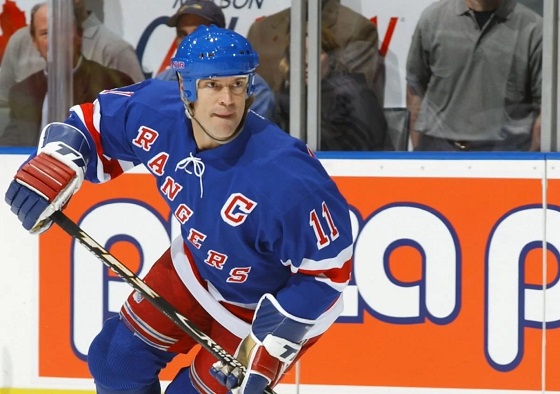
The 2025-26 NHL season opens this week with one overriding issue: Connor McDavid. Will the best player in this generation stay in Edmonton or go elsewhere? It’s a question that will be asked every day till the playoffs end or McDavid is traded. Naturally Edmonton is having a meltdown. Some are resigned to losing him. Others feel he could sign a bridge deal.
When it comes to losing their stars, Oilers City has been there before. The trade that always gets top billing is the 1988 Gretzky deal to the L.A. Kings, the seismic re-organization of hockey in the late 20th century. Less talked about— but more impactful on the ice— was a trade made this week in 1991 that sent Mark Messier to the New York Rangers. Messier led the Rangers their first Stanley Cup in 1994— their first since 1940. Gretzky never won a Cup away from Edmonton.
Here’s how Messier described the deal in our most recent book Deal With It: The Tales That Stunned The NHL & Changed Hockey:
Calling up GM Glen Sather a couple of months after the 1991 postseason ended to tell him he wanted to move, Messier years later recalled “phoning him was a tough thing. I think it was mid-July. I’d been thinking of this for a while. It wasn’t just the money. I’ve made it clear their offer was pretty good. Certainly enough, where I’d never have to worry again… But I had a gut feeling I wanted to make a change, to go. To try for a new challenge and grow a bit.”
Both sides knew it was just business of course. Messier was correct in assuming he would not enjoy anything close to a sixth Cup if he stayed for a lucrative offer in Edmonton.
“I was delighted with Mark,” Sather would admit about the parting of ways. “He’s a terrific guy to be with and a great player, and it’s sad for me to have to trade him. But it becomes more complicated than that, because of what we’re trying to do here now. I don’t want to be caught in a situation where we’re going to be struggling for five or six years, depending on the draft to get us competitive again. If you analyze the way teams in this league have worked, they’ve all run on cycles. You peak for three or four years, and then go downhill and try to get back up again. And if you don’t trade players you can recover with, then you’re never going to recover. You only have so many assets to make deals with.
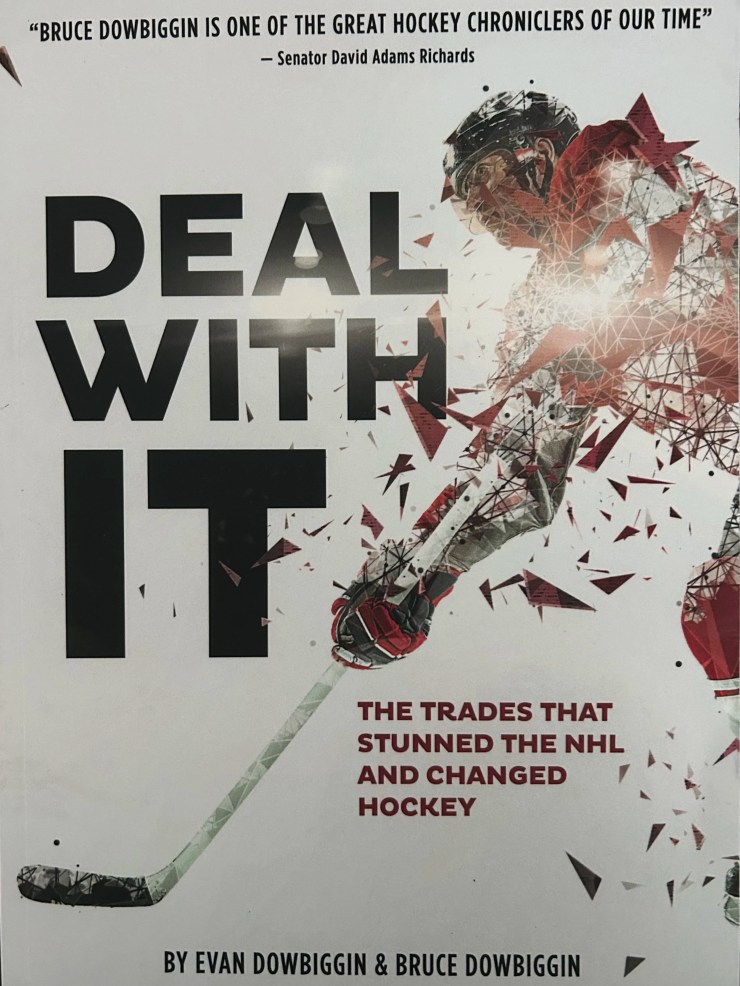
Neil Smith, the Rangers general manager who had seen his team endure back-to- back playoff disappointments (beaten both times by the Capitals), got wind of the possibility of landing the great “Moose” over the summer that year. Haggling for weeks toward an eventual deal, Sather would later point out the discrepancies between markets that were tearing apart the NHL at that time, bemoaning that “Maybe they’ll pay (Mark) in New York, maybe Mark is the kind of guy that can attract enough attention to do that. I mean, he’s going to be the matinee idol, he’s Madison Avenue, he’ll be terrific there. He’s the first big superstar they’ve had since Rod Gilbert, so they can afford to pay him whatever they want to pay. We don’t have MSG behind us.”
Edmonton’s training camp in 1991 went on with Messier absent, while he headed to Hilton Head to play golf with his father and brother following the 1991 Canada Cup win. Messier’s sabbatical in the sun ended on the day Edmonton’s season had started. On October 4, 1991, Messier got the call on the 16th tee box at Palmetto Dunes in South Carolina. It was Sather telling him he was headed to Broadway. In the deal, Bernie Nicholls, Steven Rice, Louie DeBrusk and future considerations (completed when the Rangers snagged Jeff Beukeboom for David Shaw) would be coming over in exchange for the vaunted Oiler captain. In the aftermath, an elated Smith hyperbolically called it “the biggest day in the 66-year history of the New York Rangers.” Hundreds and hundreds of miles away to the Northwest, reactions were considerably less enthusiastic.”

The rest was legend. With the media pressure and criticism mounting in the 1994 Conference Final, Messier was asked before the pivotal Game 6 matchup if he guaranteed a win. Responding, “Yes, we will win tonight,” he made what seemed like an innocuous comment at the time. But it was used by a NYC sports media that still lionized when “Broadway” Joe Namath had guaranteed his Jets would pull off the upset of the Baltimore Colts in Super Bowl III in 1969. Newspaper headlines honed in on Messier’s “bold guarantee.” The bravado would fall flatter than a pancake if this bulletin-board quote instead got the Rangers eliminated. Instead, Messier’s performance solidified his legacy as one of the great leaders/captains the sport had ever seen.” And the Rangers carried off the Cup, besting longtime whipping boys Vancouver in seven games.
Will McDavid win a Cup in Edmonton in 2026? Will he, like Messier, get his Cup with a large market team? Or will he be like Gretzky, doomed to play for three more teams without the big prize? This week we start the engines on Edmonton’s worst nightmare.
Bruce Dowbiggin @dowbboy is the editor of Not The Public Broadcaster A two-time winner of the Gemini Award as Canada’s top television sports broadcaster, his new book Deal With It: The Trades That Stunned The NHL And Changed hockey is now available on Amazon. Inexact Science: The Six Most Compelling Draft Years In NHL History, his previous book with his son Evan, was voted the seventh-best professional hockey book of all time by bookauthority.org . His 2004 book Money Players was voted sixth best on the same list, and is available via brucedowbigginbooks.ca.
Bruce Dowbiggin
What We Had Here Is A Failure To Communicate
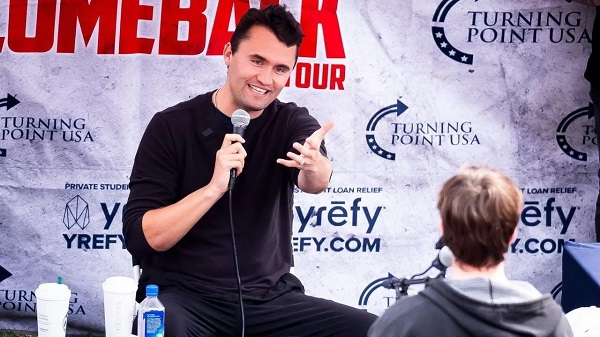
1 Corinthians 13:11,
“When I was a child, I spake as a child, I understood as a child, I thought as a child: but when I became a man, I put away childish things.”
Back in our formative days we wrote a stage play that won a book prize at University of Toronto. Flushed with success we hastily dispatched the play to our former prof, the late Urjo Kareda, who was then dramaturge at the Stratford Shakespeare Festival. And we waited.
A short time later he returned the play. As I opened the package I could see the pages marked up like some Napoleonic battle plan. My eyes went to the title page where four angry slashes underlined my artful title. “What kind of meaningless glop is this?” he wrote. It went downhill from there.
We quickly penned a hurt note, pleading, “I thought you were my friend.” To which Urjo replied, “I thought you wanted to be a writer.” Game. Set. Match. Two years and about a hundred drafts later the play was produced at the Tarragon Theatre Writers Workshop. Because we had much to learn.
We were reminded of that epiphany while watching video of Charlie Kirk’s Socratic debating (mostly) students over the years. Seeing eager young people in debate was remarkable. After unloading their box cars of prefab hate— racist, sexist, transphobe, Nazi— they were clinically defenestrated by Kirk’s casual “Name me one time I said that”. Or Kirk correcting them on Scripture texts. Or the contradictions of pro-choice politics. That began the humana-humana-humana phase of the encounter.

Our fave was Kirk offering $10,000 to anyone at Oxford Union who could name a U.S. citizen deported by ICE. That was followed by a crestfallen silence. Soon followed by the recognition from the mini-AOCs that their education and the hundreds of thousands they spent were wasted by corrupt professors and radical institutions. This produced either a) resignation or b) in the case of Tyler Robinson, a vengeful wrath and a bullet.
Because they have been indoctrinated into an education cult that equates classic argument with arguing, words with violence and religion with poison they suddenly realize that going through life depending on your feelings— as they’ve been taught since kindergarten— is going to be a disaster for them. They’re lost in a secular hellhole with no moral signposts. Just slogans. Had they been encouraged to discipline their minds to the Socratic model they might have stood a chance.
Socrates described his method as “midwifery”, because it is employed to help his interlocutors develop their understanding in a way analogous to a child developing in the womb. But their heroes told them to be nice. Or to support Hamas. Or both.
Now they were standing outside the Woke bubble with their pants at their knees on social media. “Yes, he was a bit of a jerk,” wrote one of his debaters, “Yes, he held extreme political beliefs. That does not justify violence.”
Modern education has failed them on the exchange of ideas. Marinated in radical chic by their union leaders who told them to read the room, not the books. “If your opinion depends on reliably knowing another person’s inner thoughts,” Scott Adams writes in his book Loserthink, “you might be experiencing loserthink… Keep a few examples of your wrongness fresh in your memory so you can generate the right level of humility about your omniscience in future situations.”

But enough about Jimmy Kimmell. Humility would require self awareness which is verboten for those graduating from contemporary public schooling and colleges. That’s why critics tried mightily to demean Kirk’s signature open-mike format. “Instead of debating experienced left-wing political commentators,” blubbers leftist New University, “these right-wing talking heads intentionally target college students who are often inexperienced in debate, studying subjects other than political science and uninformed in the particular policy area they are being grilled about.” Also because the late-night Edward R. Murrows would never risk it. Ah, the cruelty!
These bunkered beauties think they’ve achieved some enlightenment for reading minds. Wrong. “You can be smart and well informed while at the same time be a flagrant loserthinker,” notes Adams. Once you learn to see the walls of your mental prison, “and you learn how to escape, you will have better tools to help usher in what I call the Golden Age.”

The classic teaching model once was the erudite John Houseman as the Harvard law legend in the Paper Chase movie and TV program in the 1980s. “You teach yourselves the law, but I train your minds. You come in here with a skull full of mush; you leave thinking like a lawyer.” Houseman’s rigourous professor inspired dread in his students, and at the same time a measure of hero worship; he literally wrote the books they study.
He was pitiless in the face of the casual stereotypes that are the meat of Gavin Newsom or Jagmeet Singh. In one famous scene Houseman’s character tells a struggling student, “Call your mother, and tell her you will never be a lawyer.” (Today he’d be arrested for assault.) Moving young minds away from using feelings in argument was his goal. Tender hearts need not apply. Kirk replicated that discipline, demanding that critics bring the receipts. But it bruised the tender sensibilities of those disinclined to match his scholarship and commitment. Best to shoot him, allowed his critics.
Silencing Kirk’s voice— or replacing it with faux victim Jimmy Kimmel— is supposed help the Rachel Maddow scholars reach total consciousness. Here’s a Canadian feminist in the Globe and Mail dancing on his grave. “Charlie Kirk’s videos thrived on controversy as he used the manosphere playbook to reshape politics”. It’s all so tired, so trope, so predictable.
But it’s worked on a generation of typically well-off kids who entered schools with open minds and left as bitter, angry antifa foot soldiers. In between came the purveyors of white capalist guilt. As Voltaire is reported to have said, “Those who can make you believe absurdities can make you commit atrocities.” Welcome to 2025 M. Voltaire.
Bruce Dowbiggin @dowbboy is the editor of Not The Public Broadcaster A two-time winner of the Gemini Award as Canada’s top television sports broadcaster, his new book Deal With It: The Trades That Stunned The NHL And Changed hockey is now available on Amazon. Inexact Science: The Six Most Compelling Draft Years In NHL History, his previous book with his son Evan, was voted the seventh-best professional hockey book of all time by bookauthority.org . His 2004 book Money Players was voted sixth best on the same list, and is available via brucedowbigginbooks.ca.
-

 National23 hours ago
National23 hours agoCanada’s birth rate plummets to an all-time low
-

 Fraser Institute2 days ago
Fraser Institute2 days agoAboriginal rights now more constitutionally powerful than any Charter right
-

 Alberta1 day ago
Alberta1 day ago$150 a week from the Province to help families with students 12 and under if teachers go on strike next week
-
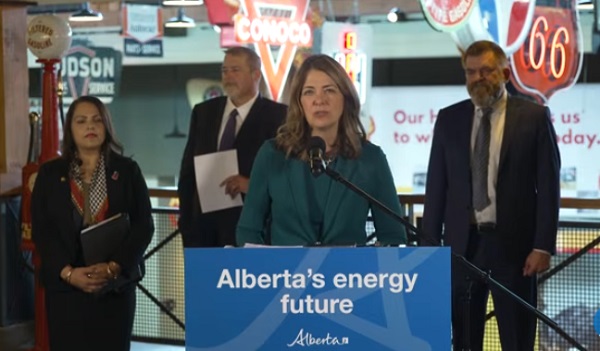
 Alberta9 hours ago
Alberta9 hours agoWith no company willing to spearhead a new pipeline under federal restrictions, Alberta takes the lead
-

 espionage22 hours ago
espionage22 hours agoNorth Americans are becoming numb to surveillance.
-

 Crime23 hours ago
Crime23 hours agoPierre Poilievre says Christians may be ‘number one’ target of hate violence in Canada
-
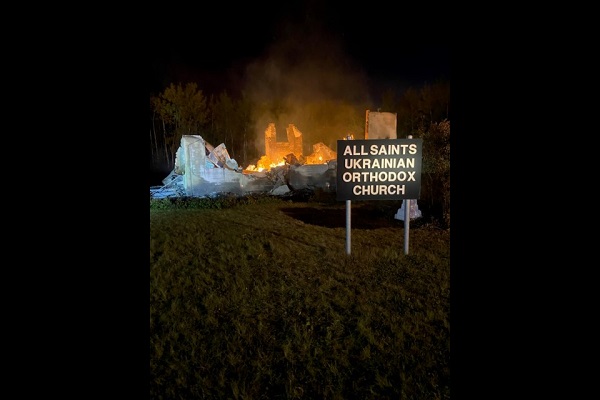
 Alberta2 days ago
Alberta2 days agoOrthodox church burns to the ground in another suspected arson in Alberta
-
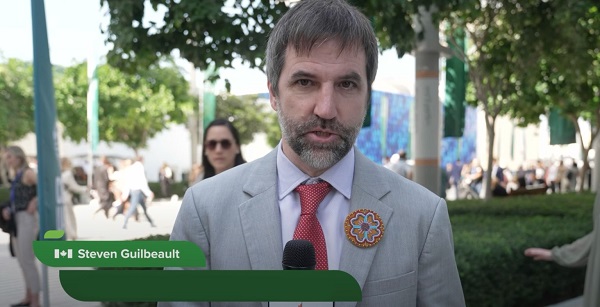
 Censorship Industrial Complex2 days ago
Censorship Industrial Complex2 days agoCanada To Revive Online Censorship Targeting “Harmful” Content, “Hate” Speech, and Deepfakes
